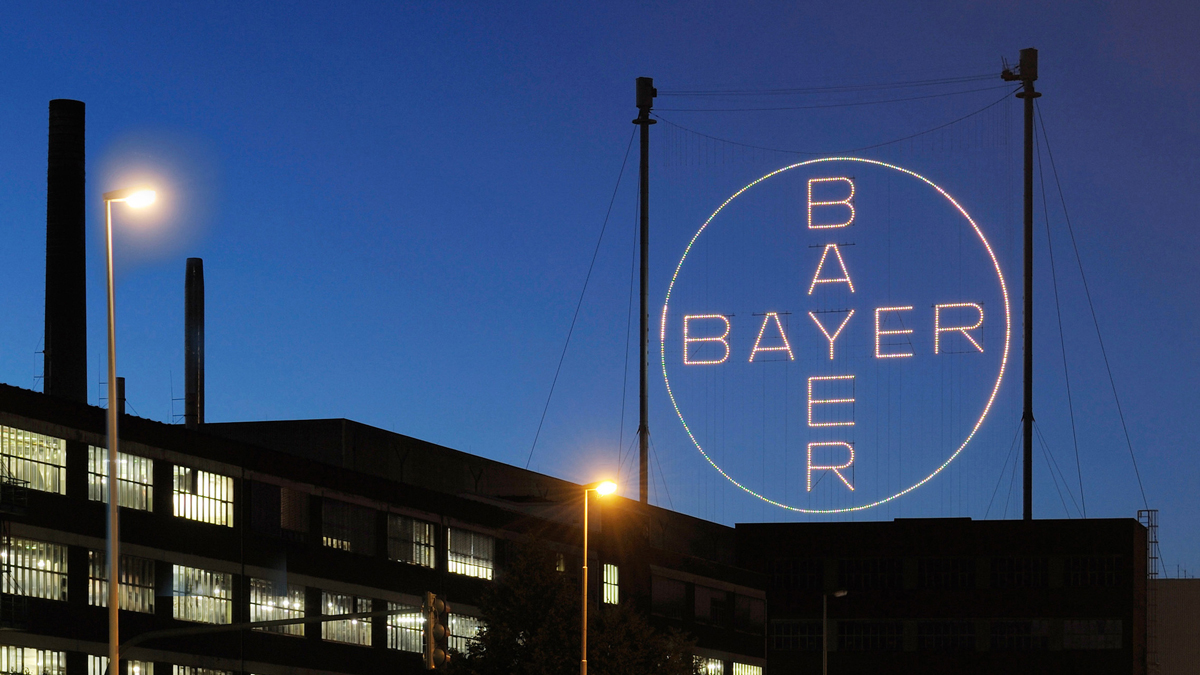Bayer takes lung cancer therapy hope into phase 3

Bayer has advanced its small-molecule drug BAY 2927088 into phase 3 for non-small cell lung cancer (NSCLC) with HER2 activating mutations, one of the drugs central to the company’s plan to become a top player in oncology by the end of the decade.
The first patient has been enrolled into the SOHO-02 trial, which will look at the drug’s potential as a first-line treatment for this type of lung cancer, comparing it to the current standard treatment of MSD’s PD-1 inhibitor Keytruda (pembrolizumab) with chemotherapy (cisplatin/carboplatin and pemetrexed).
BAY 2927088, which combines inhibition of HER2 (including exon 20 insertions and point mutations) with blockade of EGFR, both mutations that are seen in NSCLC tumours. The oral drug was awarded breakthrough status from the US FDA as well as in China earlier this year as a second-line treatment for HER2-positive NSCLC previously treated with systemic therapy.
HER2 alterations are seen in 2% to 4% of NSCLC tumours, according to Bayer, while EGFR mutations occur in up to 50% of cases. Studies have suggested that HER2 alterations may also serve as a resistance mechanism in up to 10% of EGFR-mutated NSCLC, pointing to a potential role for Bayer’s drug as a complement to anti-EGFR therapies.
At the moment, the only drug that has been approved by the FDA for HER2-mutated NSCLC is AstraZeneca and Daiichi Sankyo’s antibody-drug conjugate (ADC) Enhertu (trastuzumab deruxtecan), which is cleared for second-line use only and is delivered as an intravenous infusion. Enhertu was given accelerated approval for this indication by the FDA in 2022.
Bayer is due to present results from the phase 1/2 SOHO-01 study of BAY 2927088 as a second-line therapy for HER2-altered NSCLC at the World Conference on Lung Cancer (WCLC) in San Diego on 9th September.
Bayer’s push to become a top 10 oncology player is being spearheaded by prostate cancer drug Nubeqa (darolutamide), which it thinks could become a €3 billion-plus product if its label can be expanded and is central to the company’s target of €10 billion in cancer sales by the end of the decade.
BAY 2927088 is currently leading the company’s in-house cancer pipeline after Nubeqa, along with an effort to add breast cancer to the indications for oral neurokinin antagonist elinzanetant, currently filed as a treatment for menopausal symptoms.
There are a series of other early-stage clinical candidates in the pipeline, including a PSMA-directed prostate cancer radionuclide therapy that could rival Novartis’ fast-growing Pluvicto (lutetium vipivotide tetraxetan), but Bayer has suggested it may need to look externally to add new programmes in oncology if it is to meet its ambitions.
It added quite a few cancer candidates when it acquired Vividion for $1.5 billion upfront in 2021, and followed that up with the takeover of Noria Therapeutics and subsidiary PSMA Therapeutics in 2022, which gave it the radionuclide candidate for prostate cancer.












